Bacteria from processed meats led to the world’s worst ever outbreak of listeriosis, in South Africa in 2017, killing over 200 people.
It wasn’t an isolated incident. In fact, there are 600 million cases of foodborne diseases every year.
Food companies work tirelessly to clean their facilities and prevent outbreaks – but disinfectants survive on surfaces for just a matter of minutes before they decompose due to exposure and UV light.
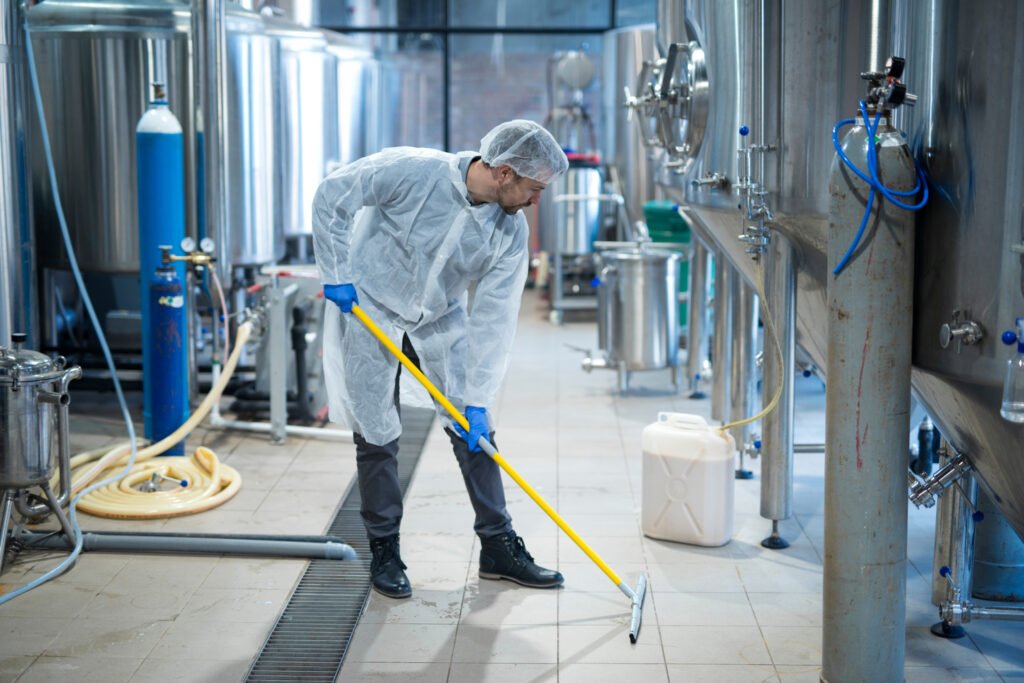
Israeli startup Bio-Fence has developed an additive that makes disinfectants last for weeks, even months.
It can be mixed with nearly any coating or paint to be applied to walls and floors, so that when the surface is sanitized with a disinfectant, it prevents the growth of bacteria for much longer.
In the food industry, the coating only needs to be renewed every five years, says the company’s CEO and Co-founder Ofer Shoham. And in the span of those five years, disinfectants can be sprayed onto surfaces and last for weeks, as opposed to mere minutes.
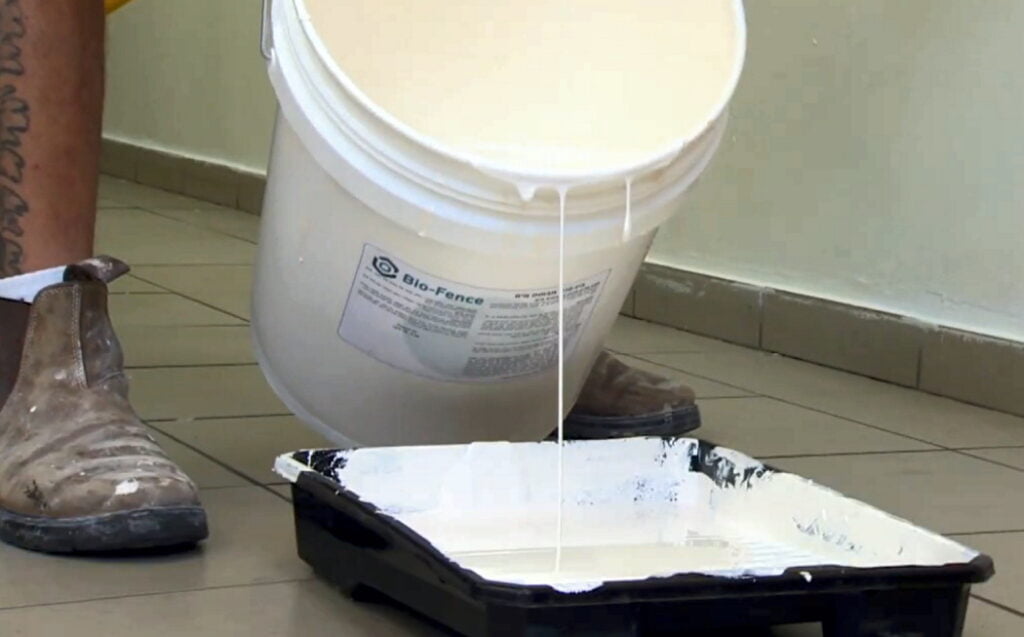
“Our technology creates a film or coating that can stabilize powerful biocides (chemicals that destroy harmful organisms) like chlorine and give them a long-lasting ability,” he explains.
“The advantage of chlorine is that it’s very safe. We use it in drinking water, and we wash fruits and vegetables with it. The only problem with it is that although it’s powerful, safe and efficient, it only stays active for a few minutes until it decomposes.
“We take the good things about chlorine – its safety, and the way it rapidly kills any microorganism – and extend its activity on surfaces,” he tells NoCamels.
“So the surface is protected from recontamination. Any bacteria that lands on the surface meets a concentration of chlorine and will be immediately destroyed.”
Listeriosis is fatal in 25 percent of cases, even when treated with antibiotics, and 90 percent of people who get infected with it are hospitalized in the ICU.
They can experience fever, muscle aches, and convulsions. Pregnant women can even experience miscarriages, and pass on the life-threatening infection to their newborn.
It primarily plagues food-production plants, and while other foodborne bacteria stop multiplying at refrigeration temperatures, it will continue, albeit slowly.
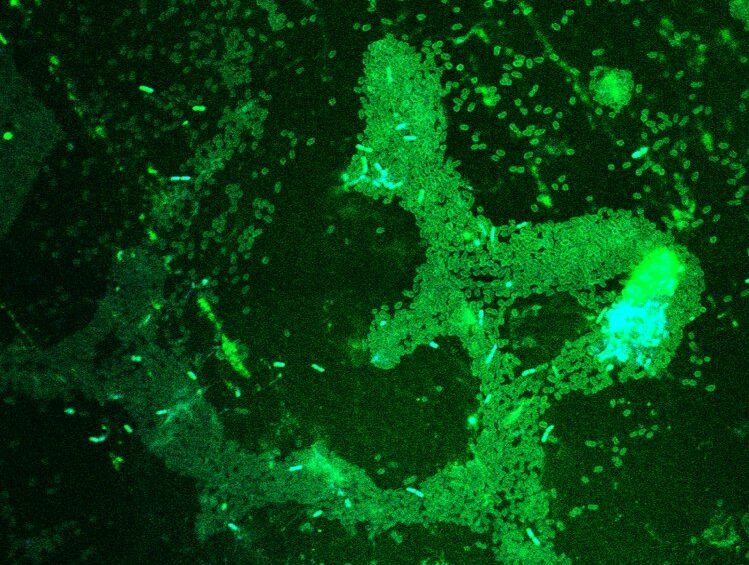
This isn’t a comforting thought, given that most of our food comes from these facilities.
Petra Bischoff, a South African woman who regularly ate cold cuts, was infected with listeriosis during the 2017 outbreak, and was in the ICU for nearly a month.
When she awoke from her coma, she had to re-learn how to speak, walk, and eat.
“To be a baby at 69 isn’t easy,” she told Food Safety News. “When I look in the mirror I look at a strange person. I don’t know this person.”
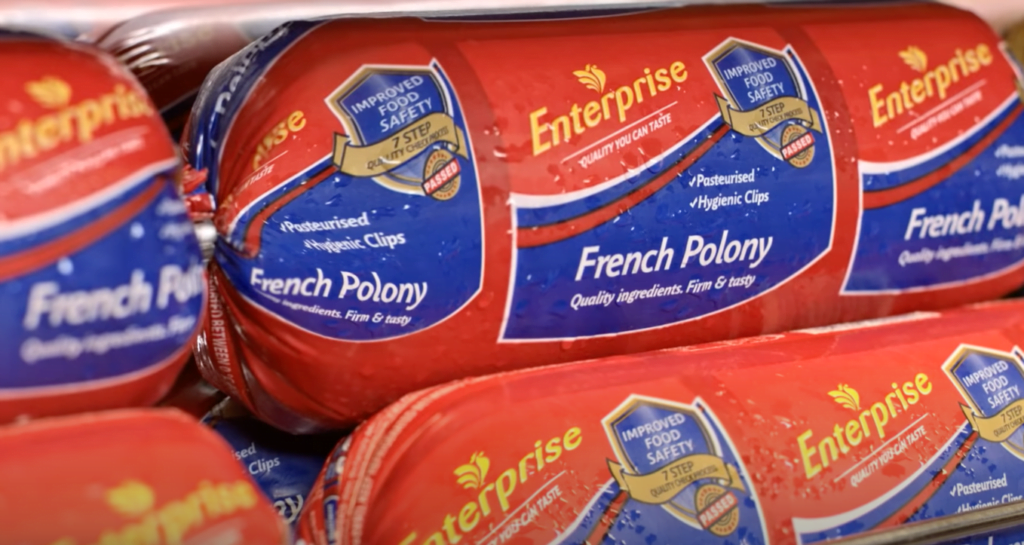
Shoham says his company’s additive is a new chemical, based on organic material and synthesized in a way that creates the ability for chlorine to bind to it. The bond is just strong enough to prevent it from decomposing, but weak enough so that it can dissolve into bacteria’s outer layer of water and kill it.
Sign up for our free weekly newsletter
SubscribeIn 2021, Bio-Fence put its product to the test in a pilot with a leading Israeli hot dog producer.
The manufacturing plant had suffered from continuous listeria presence on its floors, despite strict sanitation procedures up to three times a day. Listeria was detected in 91 percent of the daily floor samples for three weeks before the pilot began.
After Bio-Fence’s enhanced coating was applied to the floors and lower parts of the walls, the pathogen was completely undetectable.
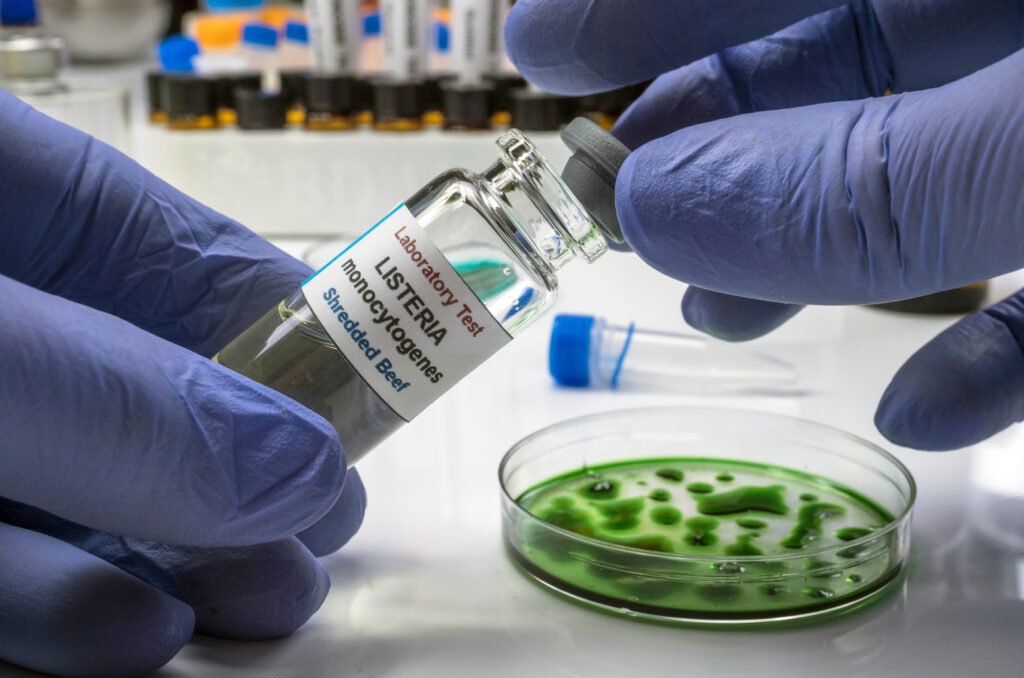
“We want to solve the most challenging problems,” says Shoham, a food hygiene sales director for 37 years at Diversey, a leading American detergent and sanitizer provider, before founding Bio-Fence.
“It’s nice to have a product that can kill 99.99 percent of the bacteria on your kitchen counter, but anyone can deliver that. We are trying to take on the most extreme and difficult tasks, because once we succeed there, we are creating an impact.”
Bio-Fence is expanding beyond food to the healthcare sector. It has an upcoming pilot with a leading medical facility in Israel, in which it will test a concentrated, water-based spray.
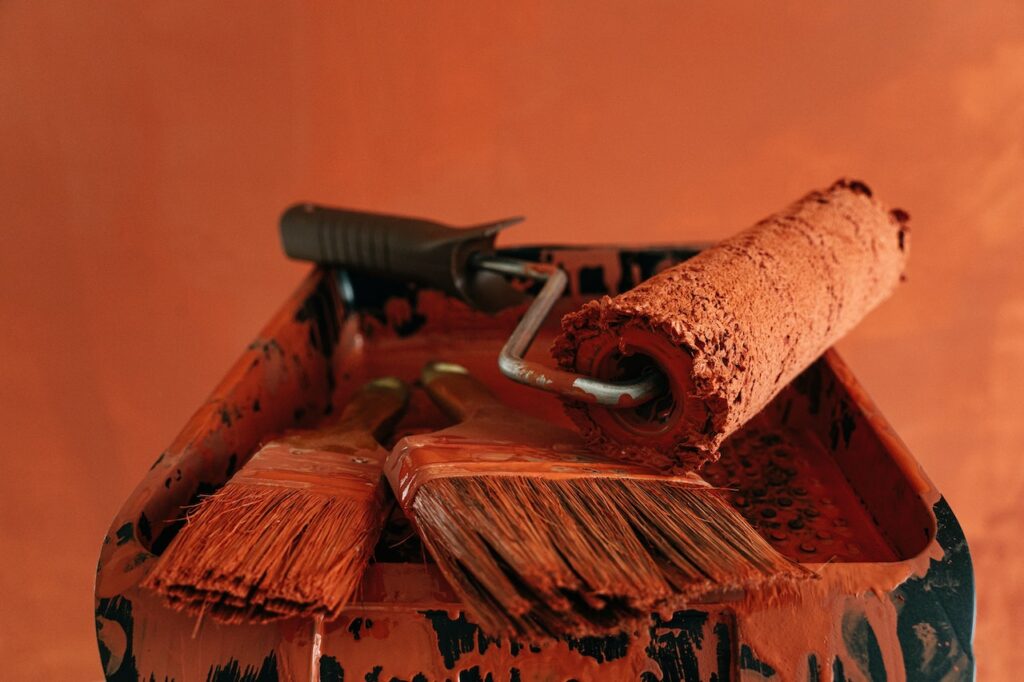
“The surfaces of hospitals and clinics need a more intense type of cleaning and sanitation, and they are not straight surfaces,” explains Lior Dudaie, VP of Business Development and Marketing at Bio-Fence. “This is why the application needs to be modified.”
Hospital staff will simply need to insert a chlorine tablet into the formulation and spray it on surfaces that are high sources of contamination, like bed frames, cabinets, and door knobs. The film will be active for seven days.
“By applying that coating on these surfaces, we are providing a long-lasting antimicrobial activity that is totally destroying the bacteria and preventing any growth of other bacteria,” says Shoham.
“What we’re introducing makes it so that the staff doesn’t have to do anything special or different from what they do today.”

Shoham says that there is no other company like his. And because Bio-Fence is not claiming to launch a new antimicrobial product, it doesn’t need to apply for regulatory approval. All it is doing is introducing a compound into existing products to stabilize disinfectants.
“We are not inventing or modifying the current product which has been used to kill bacteria like chlorine. The only thing we do is bind and stabilize them on the treated surfaces.”
Shoham says that the chemical and paint/coating industries, the two sectors his company intersects, have not experienced innovation in decades. If anything, there are more and more regulations restricting the use of chemicals because of their overuse and misuse, which decreases their efficacy against bacteria and prevents innovation.
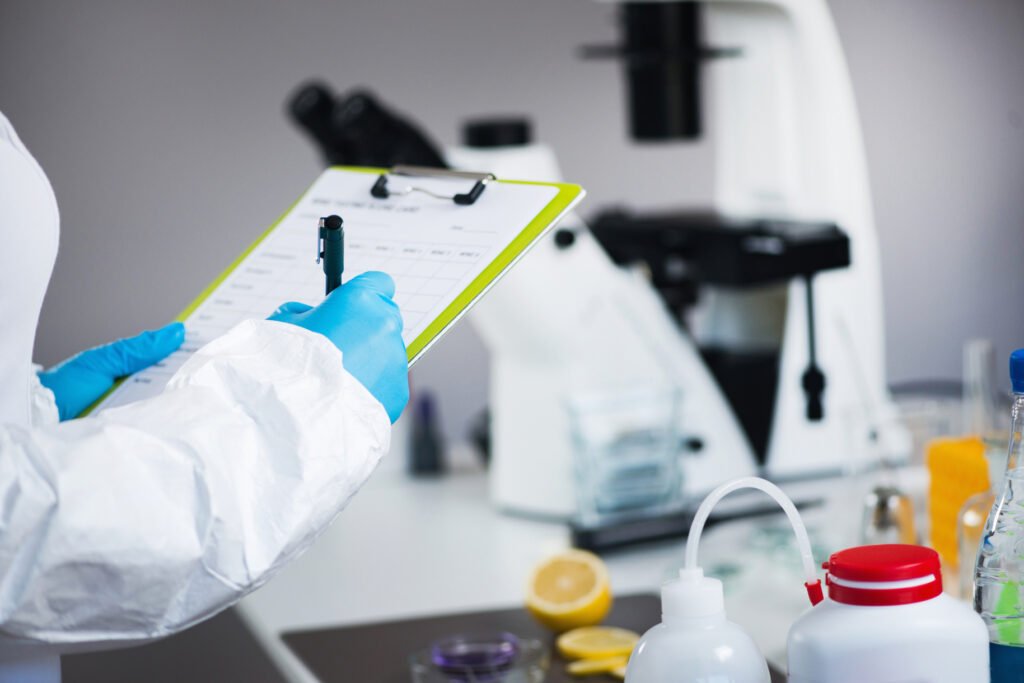
And the paint and coating industry is also very conservative – the only solution they have, he says, is silver ion, which kills bacteria, but leaches from the paint into the environment, causing toxicity in water reservoirs, and poisoning fish and algae.
Bio-Fence does not yet have a commercial product, but has added its technology to coating and paint companies for various projects for the food industries of the US, Israel, and most recently, Brazil.
And if the spray for the healthcare industry is approved, they will produce it themselves and partner with health industry distributors to sell it to hospitals and clinics.
Bio-Fence was founded in 2018. It is currently raising funds to invest in sales and marketing in the EU and US, and launch its healthcare tech in the hospitals in the US.
Related posts

Israeli Medical Technologies That Could Change The World

Harnessing Our Own Bodies For Side Effect-Free Weight Loss

Missing Protein Could Unlock Treatment For Aggressive Lung Cancer


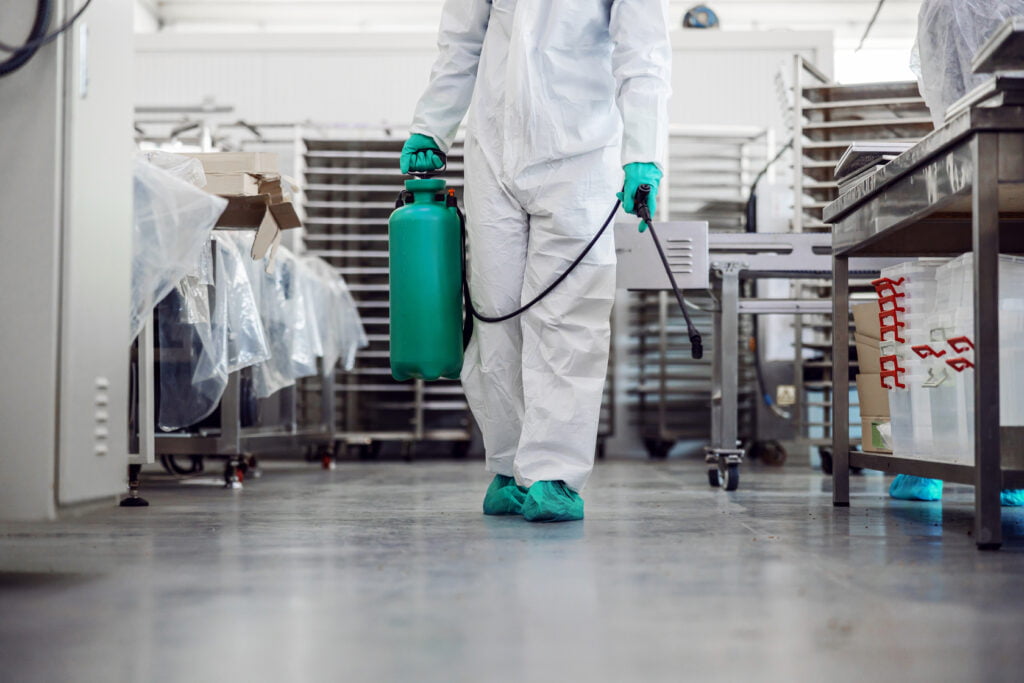

Facebook comments